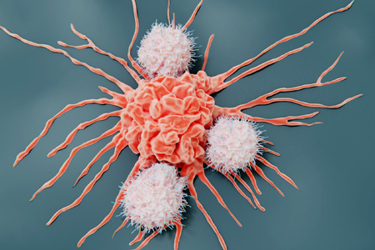A Feeder-Free Platform For Generating Mature Natural Killer Cells
By Raymond Wu, PhD, Joshua Gutierrez, Venkatesh Natarajan, PhD, and Frank Luh, Theragent

Natural killer (NK) cells represent a promising avenue for cellular immunotherapy due to their inherent cytotoxic potential against tumor cells and virally infected cells. These lymphocytes exhibit a unique ability to recognize and eliminate diseased cells through a balance of activating and inhibitory receptors. This "missing-self" recognition system allows NK cells to target diseased cells while sparing healthy tissues.
Clinical trials have demonstrated the safety and efficacy of NK cell therapy, particularly when compared to T cell therapies which can induce graft-versus-host disease (GvHD). NK cells can be derived from various sources, including peripheral blood, cord blood, and stem cells. Notably, cord blood and peripheral blood-derived NK cells engineered with Chimeric Antigen Receptors (CARs) or used in conjunction with therapeutic antibodies have shown promising results in advanced clinical trials.
This study explores the potential benefits of a feeder-free platform for NK cell activation and expansion. Compared to traditional feeder cell methods, our findings suggest that feeder-free activation promotes the expression of CD57, a marker of NK cell maturity and cytotoxicity. These CD57+ NK cells exhibit enhanced natural cytotoxicity and Antibody-Dependent Cellular Cytotoxicity (ADCC) activity. This increased cytolytic potential stems from the expression of cytotoxic molecules like perforin and granzymes within CD57+ NK cells, enabling them to efficiently eliminate target cells upon encountering tumor antigens or therapeutic antibodies.
Examine the advantages of NK cells in cellular immunotherapy and the importance of developing efficient activation and expansion platforms. The feeder-free platform offers a promising strategy for generating potent allogeneic NK cells for future clinical applications. Further research in this area will be crucial for advancing NK cell-based therapies and improving their effectiveness in treating various diseases.
Get unlimited access to:
Enter your credentials below to log in. Not yet a member of Bioprocess Online? Subscribe today.
